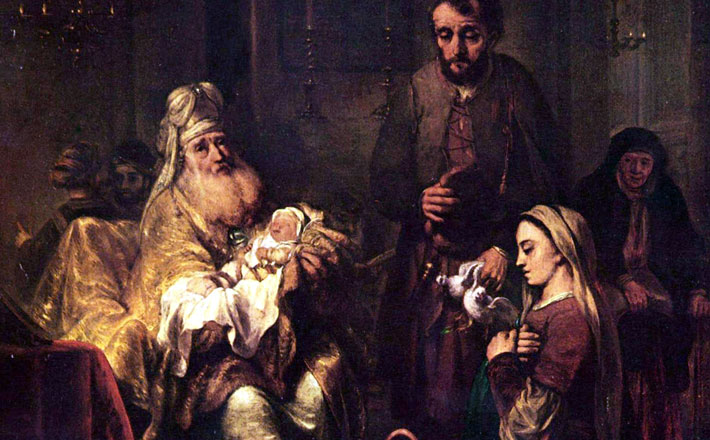Commentary on Galatians 4:4-7
The choice of this text as a reading for during the on-going celebration of Christmas is appropriate.
In four verses, Paul describes in succinct prose the salvific design of the Christ event. A paraphrase of these verses, incorporating other elements of Galatians and 2 Corinthians might go something like this:
“The transcendent God, in complete freedom, chose to change the very fabric of all life in order to liberate it from the power of Sin and Death to which it had subjected itself. God’s pre-existent Son — God’s own righteousness and glory — was commissioned with the task. This Son — the very wisdom of God — entered the sphere of the cosmos as in the form of a vulnerable human, ‘born of a woman.’ He was constrained by the elemental enslaving powers (Galatians 4:3) as were all living things. The man Jesus — a Jew faithful to the Word of God — took on upon himself the curse that came with this bondage to Sin on the cross (Deuteronomy 21:22-23; Galatians 3:13), so that humanity might become the righteousness of God (2 Corinthians 5:21).
Through sacramental baptism into the death and resurrection of Christ (Galatians 3:27; cf Romans 6:1-11), one receives the very spirit of the exalted Christ and so becomes the adopted children of God, incorporated into the new humanity of God’s creation (2 Corinthians 5:17). It is a humanity in which there is no longer Jew or Greek, slave or free, male and female (Galatians 3:27-28) — distinctions that Sin worked to its own advantage. As adopted heirs gifted by the Spirit of Christ, that Body, brought from death to new life, rightfully might call God, ‘Abba’ — ‘Father.’”
This is story of redemption of amazing scope! Paul, in fact, can speak of the Christ event as “by which the world has been crucified”(Galatians 6:14). That is, the world as he knew it before Christ no longer exists. Something completely different — of the order of the difference between life and death — has taken its place. All this is why the church celebrates the birth of the baby Jesus in the Christmas season!
There are a few phrases in this pericope that are deserving of some attention. The first is “the fullness of time” in Galatians4:4. Much ink has been spilt over speculations about why Jesus was born when he was. Most look to the material conditions of the Mediterranean basin in the first century for answers. There are variations of this approach that usually look to the Roman, Greek, and Jewish “preparations” for conditions suitable for the spread of the gospel. The Roman Empire had established the Pax Romana — a peaceful period following the chaos of the civil wars that ended when Augustus (the first emperor) defeated Anthony. The Romans stabilized trade, built roads, etc. The Greeks are seen to have provided the common urban culture and language (Koine Greek) of the East where early Christianity flourished, as well as an interest in cultic pieties, foreign gods, mystery religions, “divine men,” healing rituals, etc. Jewish culture gave the monotheistic framework, Scripture, messianic midrash, apocalyptic, the respectability that came with its antiquity, as well as a Greek-speaking diaspora community that attracted Gentiles (aka “God Fearers”) to Jewish ethics and synagogal life throughout the Empire. All of this might be true and did, perhaps, provide complex material, cultural, and religious foundations for the spread of the gospel.
But it still leaves much of the world unaccounted for. The Americas were then populated, as were Africa and Asia. Such speculations regarding the timing of the Incarnation are, really, arguments from silence that carry a Eurocentric bias. There is, of course, no satisfactory answer. Not much more can be said then that God freely chose to unleash the gospel, “the power of God for salvation” (Romans 1:16), through the particularities of the Christ event in the first century CE. It was, in fact, the Incarnation that delineated the turning of the ages, the “fullness of time,” not the other way around. It is, as grammarians would say, a condition that is inferred from evidence (“If it’s Tuesday, this must be Belgium.”) That is, by analogy, “if God has sent the Christ of Israel to redeem the world, then the fullness of time has come.”
The second phrase that is of interest is found in Galatians 4:5. The Incarnation occurred “in order to redeem those who were under the law, so that we might receive adoption as children.” One is tempted here to assume that Paul is referring to Jews when he refers to “those who were under the law.” Many interpreters do. The problem, however, is that Paul is writing to Gentiles. The “we” here must at least include Gentiles. How are Gentiles “under the (Jewish) law”? Here we come under much disputed theological territory that has come in the wake of the “New Perspective on Paul,” which is really a new perspective (among Christian scholars of the last generation) on the function of Jewish law in Second Temple Judaism. This is a complex, but important, subject. Suffice it to say here, that perhaps the problem is not so much with Jewish law, but Sin. So insidious is Sin that even the good gifts of God, like the Law (Galations 3:21) or even the gospel, can be easily misused.
As J. Louis Martyn has pointed out, one of the problems with Law (understood as commandments, mitzvot) is that it categorizes the world in terms of “law/not law.” This opposition can, then, work against the intent of God. Even Gentiles are born “under” a system that construes life in terms of that which is guided into righteousness by halakhah and that which is not. Under this system, Gentiles lie outside the holiness demanded by God. Paul, in Galatians, is arguing against the imposition of Jewish law on Gentile converts, because this assumes the structures of the “old age” and the thinking that goes with it. In fact, with Christ, comes an end to this function of the law — it no longer clearly delineates the people of God from those who are outside its purview (Romans 10:4). Its guidance for the people of God now lies elsewhere. As Paul notes in Galatians5:14,“The whole law is summed up in a single commandment, ‘You shall love your neighbor as yourself’” (cf. Matthew 22:37-40). Rather than realizing holiness through the observance of mitzvot, it is the very spirit of Christ, poured into the heart, that allows Paul to call both the Jewish and the Gentile followers of Jesus “holy” (hagioi, “saints”; Romans 1:7; 1 Corinthains 1:2). It is the indwelling spirit of God and not the status of being “under the law” that makes the church “one in Christ Jesus” (Galatians 3:28).


December 28, 2014